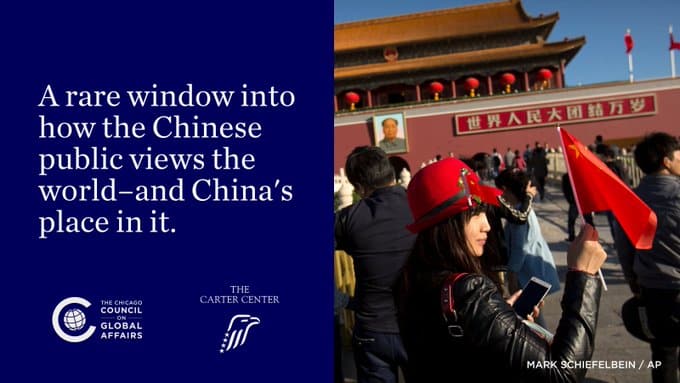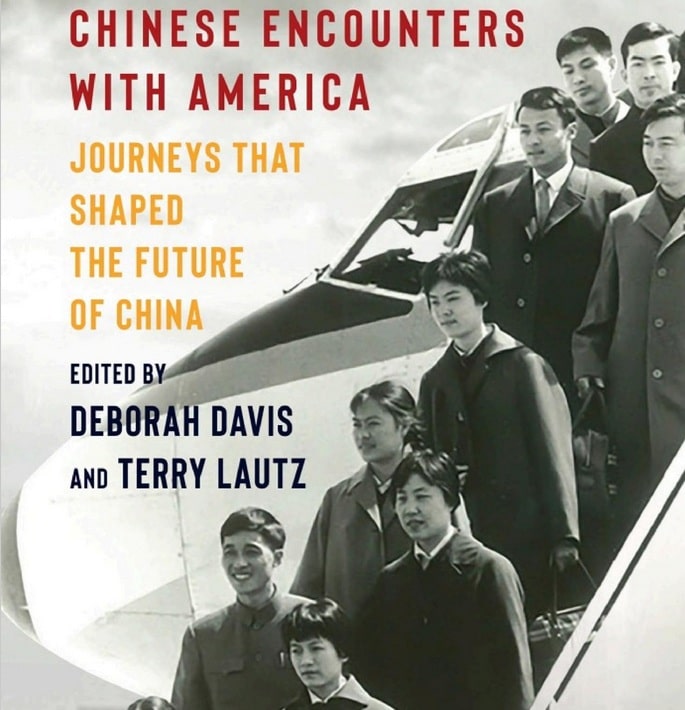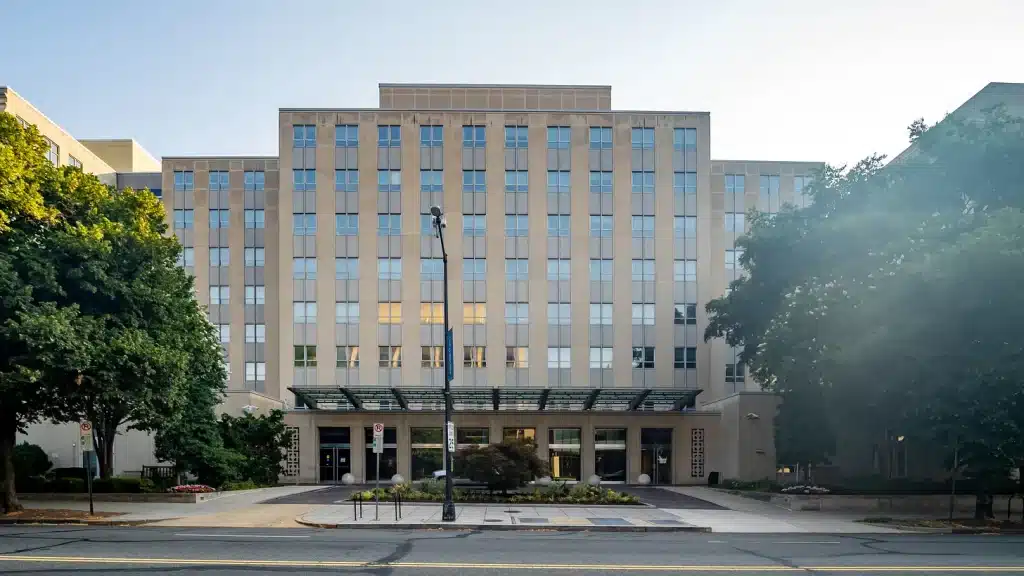China, the U.S., and Developing Countries News Roundup
Image: Quartz Africa – Ethiopia’s Prime Minister Abiy Ahmed attends a meeting with Chinese Premier Li Keqiang in Beijing, China in 2019
Every two weeks, The Carter Center’s China Program releases an overview of major events involving Chinese and U.S. global engagement, with a particular focus on emerging issues in Africa and Latin America. In addition to using news sources, the news roundup analyzes papers and reports from academic journals, governmental bodies, and NGOs, and also summarizes debates and other events organized by think tanks on select issues. The news roundup is intended to be a platform and resource for both China watchers and readers interested in political and economic development in developing countries. It aims to deepen the understanding of China’s foreign policy, and emerging issues and trends in developing countries, as well as to enhance the prospect of multinational cooperation among China, the U.S., Africa and Latin America.
What are the United States’ and China’s roles in providing vaccines to developing countries? Are there potential areas where the United States and China can cooperate in regard to Africa policy? What is the Ethiopian government’s strategy in dealing with China? How is China deepening its ties in the Caribbean region and how does this compare to their early engagements with African in the 2000s? What is the “Guangzhou incident” and what does it mean for African residents in the southern Chinese city? Learn the answers to these questions and more in this edition of the news roundup.
This issue is edited by Kathryn Putz.
News Articles
Chinese Pharmaceutical Makers Seek Approval For New Coronavirus Vaccines
(National Public Radio, 24 February, 2021)
Chinese pharmaceutical makers are seeking market approval from Beijing for two new coronavirus vaccines–one that has shown 72% efficacy and another 69% efficacy in human Phase III trials. The announcements come from Sinopharm for its seconds vaccine after the state-run company’s first was approved in December, and from CanSino Biologics, Inc., for its first vaccine.
Can the US And China Cooperate in Africa?
(The Diplomat, 23 February, 2021)
Despite the rhetoric from the Biden administration indicating that it will continue to confront China on the global stage, both Beijing and Washington have indicated that they are willing to work together when it is in their common interest to do so. When examining current challenges facing the African continent and the interests of Washington and Beijing alike it is clear that there are several areas where cooperation is possible.
(The Washington Post, 19 February, 2021)
Over the past several years, U.S. policymakers have tried to outdo themselves with their hard-line positions on China. In Africa, the U.S. strategy to “counter” China has resulted in generalizations about China-Africa relations that depict Chinese officials and companies as predators and Africans as their hapless victims. But a growing community of scholars is producing research pointing out the inaccuracies of this narrative. Researchers based in Africa, China, the United States and elsewhere are studying many aspects of China-Africa ties. Recognizing the need to strengthen the linkages between the China-Africa academic community and the policymakers and influencers, the Washington Post (through the Johns Hopkins School of Advanced International Studies China Africa Research Initiative) helped translate their research into short, accessible essays for public and policy audiences.
U.S. Will Not Send Vaccines to Developing Countries Until Supply Improves
(Financial Times, 18 February, 2021)
The US will not donate any coronavirus vaccine doses to developing countries until there is a plentiful supply of jabs in the US, Biden administration officials said on Thursday in a firm rejection of a proposal made by Emmanuel Macron, president of France. Macron told the Financial Times this week that Europe and the US should urgently donate up to 5 per cent of their current vaccine supplies to developing countries, including in Africa, where Covid-19 inoculation campaigns have barely started and China and Russia are offering to fill the gap.
Vaccine Geopolitics Could Derail Africa’s Post-Pandemic Recovery
(Carnegie Endowment for International Peace, 24 February, 2021)
Geopolitical competition, especially between China and the United States, is intensifying and could impede multilateral cooperation on critical issues including public health. Poorer and less influential countries, especially those in Africa, are caught in the middle—facing obstacles to accessing vaccines, with likely negative effects on their prospects for a smooth post-pandemic recovery. According to the Economist Intelligence Unit, Africa will not have vaccine access for healthcare workers, the elderly, and other vulnerable groups before 2023.
What African Countries Should be Fighting For in Negotiations with China
(Quartz Africa, 15 February 2021)
Much international coverage of Ethiopia last week focused on its request for debt relief under a new framework agreed to last year by the Group of 20 countries, including China. In an exclusive interview for Quartz Africa’s Africa Unconstrained: Perspectives on the Continent’s New Era video series, the ambassador discussed the Ethiopian government’s strategy for working with China, and its focus on increasing and adding value to exports to the country.
Papers and Reports
Shifting Gears: Chinese Finance in LAC, 2020
(Mararet Meyers and Rebecca Ray, The Dialogue, 24 February, 2021)
This year, for the first time since 2006, China’s policy banks—China Development Bank (CDB) and the Export-Import Bank of China (Eximbank)—issued no new finance to Latin American and Caribbean (LAC) governments or state-run companies, according to findings from the Inter-American Dialogue’s Asia and Latin America Program and the Global China Initiative at Boston University’s Global Development Policy Center (GDP). The new report, “Shifting Gears: Chinese Finance in LAC, 2020,” considers the reasons for this drop in activity while also documenting other sources of Chinese finance to the region. Also see the updated Dialogue-GDP China-Latin America Finance Database for information on China’s sovereign loans to LAC since 2005.
Podcasts
Change in Guangzhou’s African Diaspora Community
(The China in Africa Podcast, 24 February, 2021)
April 11th will mark the one-year anniversary of what’s become known as “the Guangzhou Incident” when dozens, possibly hundreds of African residents in the southern Chinese city were evicted from their homes and hotels. Chinese officials denied that Black and African residents were singled out as part of a broader crackdown to enforce stringent COVID-19 health regulations, but much of the rest of the world didn’t buy it. Tougher Chinese immigration laws, higher living costs, and new zoning ordinances have all made life increasingly difficult for African transnational migrants–especially those whose immigration status wasn’t always fully legal.
China’s Low Profile Diplomacy in the Caribbean
(The China in Africa Podcast, 19 February, 2021)
China is steadily, albeit quietly, deepening its ties in the Caribbean region using many of the same techniques that it did in the early 2000s when it ramped up its engagement in Africa. The Chinese are buying more agriculture, building infrastructure, and integrating a growing number of Caribbean states into its Belt and Road global trade agenda. But Rasheed Griffith, host of the China in the Caribbean Podcast, cautions that while Beijing’s engagement in the Caribbean may look a lot like what it’s doing in Africa and other developing regions, there are some important differences.
Small and Medium-Sized Powers’ Response to China’s Rise: A Conversation with Luke Patey
(China Power Podcast (CSIS), 16 February, 2021)
In this episode, Dr. Luke Patey discusses the implications of China’s rise in a dynamic world and how the rest of the world should respond. Dr. Patey challenges the idea that an ascendant China will lead to a world in which small developing countries become a sphere of influence for China. Alternatively, he contends smaller nations are not content to play a subservient role and there is room for pushback when China overreaches. He stresses that middle powers such as Japan and India can play a significant role in shaping global affairs and the global economy. In addition, Dr. Patey contends that in advanced democracies, China’s economic power and its willingness to use that power are often exaggerated. Lastly, Dr. Patey argues national leaders should escape the hawks-and-doves dichotomy, explaining that the importance of China demands more nuance because various countries’ business, political, and security relations with China are interconnected.








